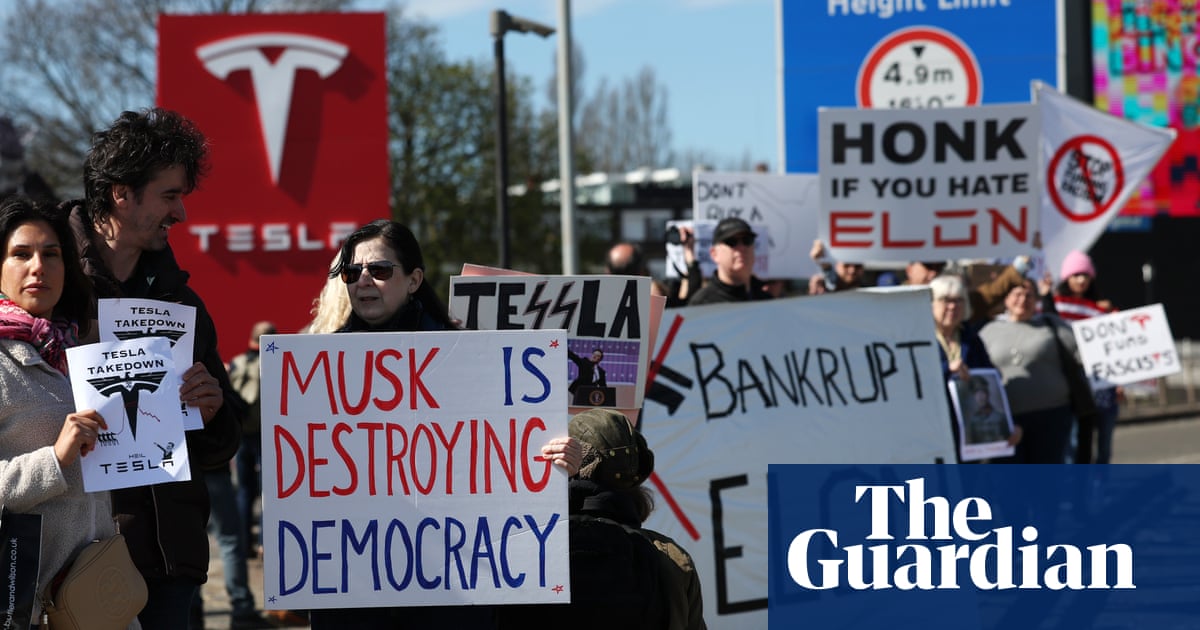On a recent Saturday, car horns echoed through west London’s A40, but this time they weren’t just part of the usual traffic chaos. Instead, they aimed at Elon Musk, the CEO of Tesla. This demonstration was part of a larger movement called "Takedown Tesla," which has gained traction from the U.S. to the UK.
Louise Cobbett-Witten stood among fellow protesters, rallying for change. “It’s too overwhelming to do nothing,” she expressed. Her sense of community resonated with many who joined her. “Everyone has to do something,” she added, emphasizing their simple yet powerful act of holding signs and shouting their concerns.
This protest was part of a global call to action, affecting over 200 Tesla locations worldwide. Though Musk hasn’t publicly addressed these gatherings, his actions have notably influenced his company’s image and sales.
In the past two weeks, Tesla faced protests outside its Park Royal showroom. In response, the company stationed a security guard at the site, who reported that the demonstrators were peaceful. Still, the recent turnout marked their biggest gathering since the protests began.
Interestingly, despite these events, Tesla sales in the UK surged by more than 20% in February, even as they fell in other European markets, according to the Society of Motor Manufacturers and Traders. This trend highlights the complex dynamics Tesla faces in various regions.
Among the protesters was Nigel Warner MBE, a retired accountant and gay rights activist. He was seen handing out stickers to Tesla drivers. “This is the only thing you can do to make a difference,” he said. His belief was clear: affecting Tesla’s sales could push for significant change.
Jim Green, a documentary filmmaker who previously worked with Musk, shared his shifting perspective. “He was so charismatic back then,” he recalled. But Green is troubled by Musk’s recent actions and how they contradict the original image of Tesla customers, who were generally environmentally conscious. “He’s insulted the very people who supported him,” Green pointed out.
Another protester, Anne Kajava, reflected deeper worries about the political climate in the U.S. “I’m genuinely concerned about a potential world war and the civil unrest happening in America,” she said, highlighting fears that many share in today’s tense global environment. “I used to be proud to say I’m American. Now, I feel the need to hide it,” she added, underscoring the changed sentiment among some Americans living abroad.
This blend of local activism and global concerns showcases how interconnected our world is today. The protests against Tesla are not just about one man or one company; they reflect a larger commentary on social issues and political fear.
As users react more fervently on social media, using platforms to express their opinions, they are adding to this global conversation. The impact of these movements can ripple beyond individual protests, shaping public perceptions and, ultimately, corporate responses.
For a deeper look into the global protests against Elon Musk, see this Guardian report.






















